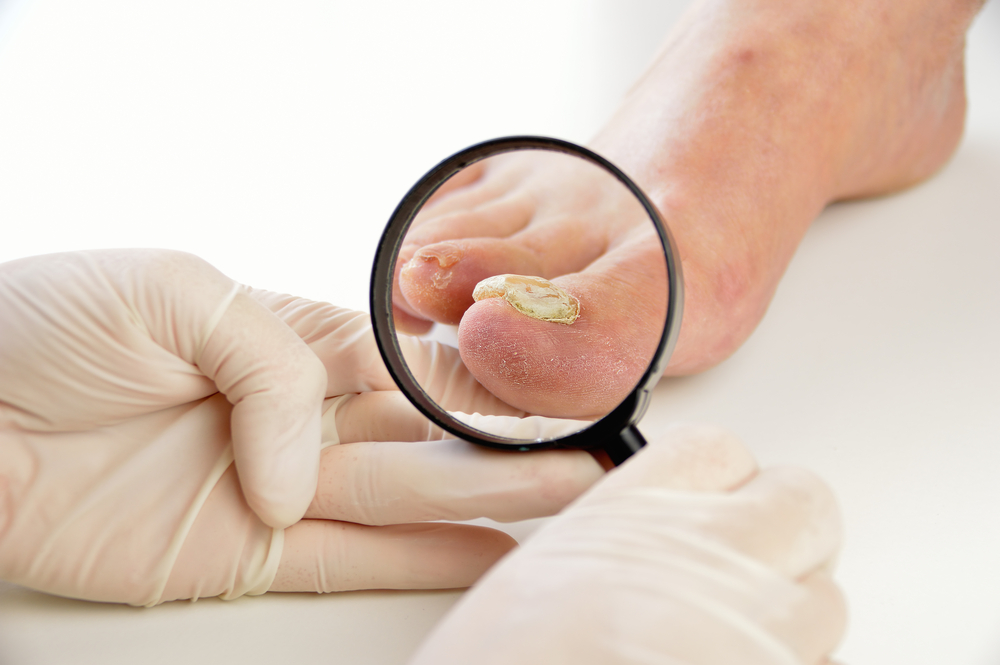Fungal Nail Self Help

Three common mistakes that people make with fungal toenail and skin infections
- Continue to moisturise between their toes
- Don’t dry feet especially between their toes
- Wash socks at low temperatures
It is important to read this as ignoring toenail fungus is a mistake. Fungal infection will become chronic and generally don’t clear up by themselves, nails will crumble, become odorous and prevent you from wearing sandals, going barefoot at the beach or showing your feet in public.
The purpose of this article is to help you identify ways to self care if you have a fungal nail infection and to keep fungal nail infections away in the future.
So your toenail infection is confirmed by your Podiatrist or Doctor?
What can you do to help yourself?
Step 1 stop moisturising your feet with creams and ensure that you dry your feet really well especially toes. Keep your towel separate from other household members as fungal infections are contagious.
If you notice cracks, whiteness or blisters between your toes most often the little toe chances are that you have a skin fungal infection ie athletes foot. Many times this is the same infection in your toenails so make sure to treat this with over the counter antifungal powder.
Next it’s time to inspect all your shoes and slippers. Fungal spores love moist warm dark conditions that are found in our shoes and sports footwear.
Throw out old worn out insoles and use antifungal powder or spray inside shoes.
Consider socks and hosiery, wash them in high temperatures around 60 degrees to kill fungal spores.
I prefer and recommend mixed fabric socks that don’t hold on to sweat my top tip is bamboo socks that are breathable and really soft against sensitive feet.
So now that you have sorted your shoes and sock what about the nails themselves?
In my experience over the counter antifungals have a chance of working when the infection has just started.
Therefore be vigilant about inspecting your nails after shower or bath. Ladies remove nail varnish soon after application as varnish stains and covers up any damage to the nail condition.
Prescription antifungals are much more effective but have harmful side effects which GPs are often reluctant to prescribe because of interactions with other medications and liver side effects.
So a consultation with the GP about oral antifungals along with a positive nail sample culture is imperative.
It is important to note that no treatment works fast.
Nail fungal infections take at least 12 months to clear up.




